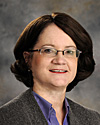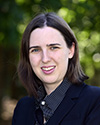Program Description
Autism, also known as autism spectrum disorder (ASD), is a broad range of complex conditions affecting communication and behavior, usually appearing by age 2. Research shows that both genetic and environmental factors likely play a role. The Centers for Disease Control and Prevention estimates that, among 8-year-old children in the United States, autism affects about 1 in 36.
Symptoms include difficulties in social communication as well as restricted and repetitive patterns of behavior and interests. Some individuals diagnosed with autism are mildly affected while others are more severely impaired. Medical conditions, such as epilepsy, sleep disturbances, and gastrointestinal problems, often occur with autism.
New and improved diagnosis methods, treatments, and services across the lifespan are needed to improve the health and well-being of people living with ASD. More funding and greater coordination among federal agencies can support autism research progress. The NIEHS research program — which attracts scientists from toxicology, epidemiology, and other areas — is leading important new discoveries that may improve or mitigate the negative health outcomes associated with ASD.
What Is NIEHS Doing?
NIEHS supports research that examines how early-life environmental exposures may interact with genetic factors to alter brain development.
NIEHS grantees are using new ways to measure and screen contaminants and learning how prenatal conditions and inflammation may increase autism risk. They are investigating the role of a wide variety of environmental exposures, including nutritional factors, air pollutants, pesticides, metals, medications, and medical procedures. Many NIEHS research efforts address priorities identified in the Interagency Autism Coordinating Committee's Strategic Plan for Autism Spectrum Disorder.
NIEHS efforts to better understand the environmental contributors to ASD include the large-scale Childhood Autism Risk from Genetics and the Environment (CHARGE) study and the Markers of Autism Risk in Babies - Learning Early Signs (MARBLES) study.
CHARGE has enrolled more than 1,800 children and seeks to clarify the roles of genetics and environmental exposures in autism. Results indicate that a variety of exposures may be associated with increased risk, including pesticides, air pollution, and maternal metabolic or immune conditions.
MARBLES, with more than 400 mother-child pairs, collects information about how exposures before, during, and after pregnancy may contribute to autism. Recent research explores the effects that prenatal exposure to chemicals called phthalates and to prenatal vitamins may have on autism development. The Early Autism Risk Longitudinal Investigation (EARLI), a study previously supported by NIEHS, used a similar study design and is still a resource for investigators.
Many NIEHS-funded ASD researchers participate in the Environmental Influences on Child Health Outcomes (ECHO) Program. ECHO research focuses on five key health outcomes — neurodevelopment; pre-, peri-, and postnatal outcomes; the upper and lower airway; obesity; and positive health — and seeks to address research questions about the effects of a broad range of environmental exposures. Cohorts are mostly mothers and children, recruited during the prenatal period with long-term following of the children.
Identifying environmental factors that increase a child’s chance of developing autism is essential to improving public health efforts to reduce or prevent exposure to those factors.
Learn more about environmental factors that may be associated with autism in the NIEHS Health and Education portal.
Program Lead
-

-
Cindy P. Lawler, Ph.D.
Chief, Genes, Environment, and Health Branch -
Tel 984-287-3280
[email protected] -
P.O. Box 12233Mail Drop K3-15Durham, NC 27709
Additional Program Contacts
-

-
Amanda E. Garton, Sc.M., M.S.P.P.
Health Specialist -
Tel 984-287-3260
[email protected]


